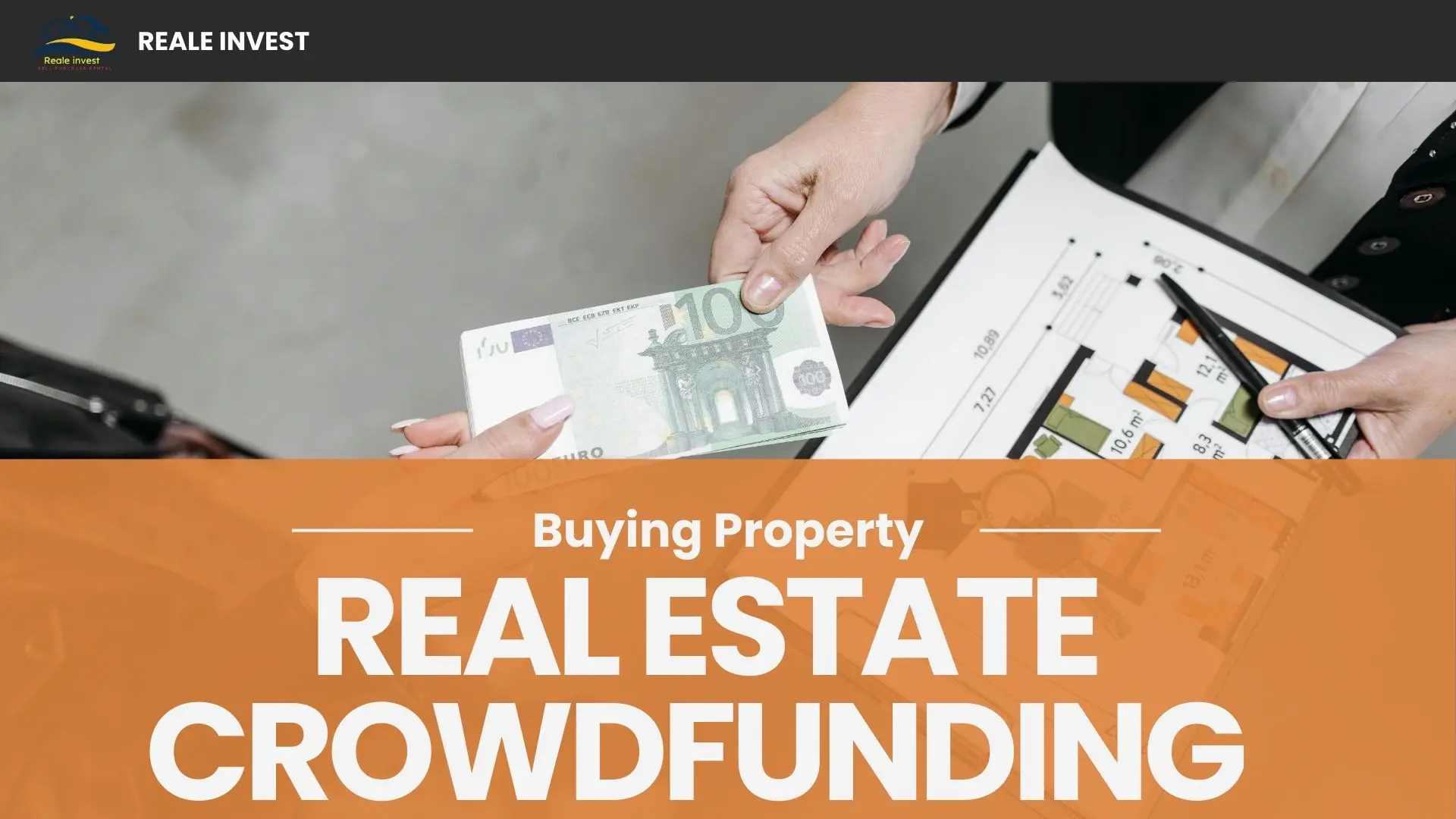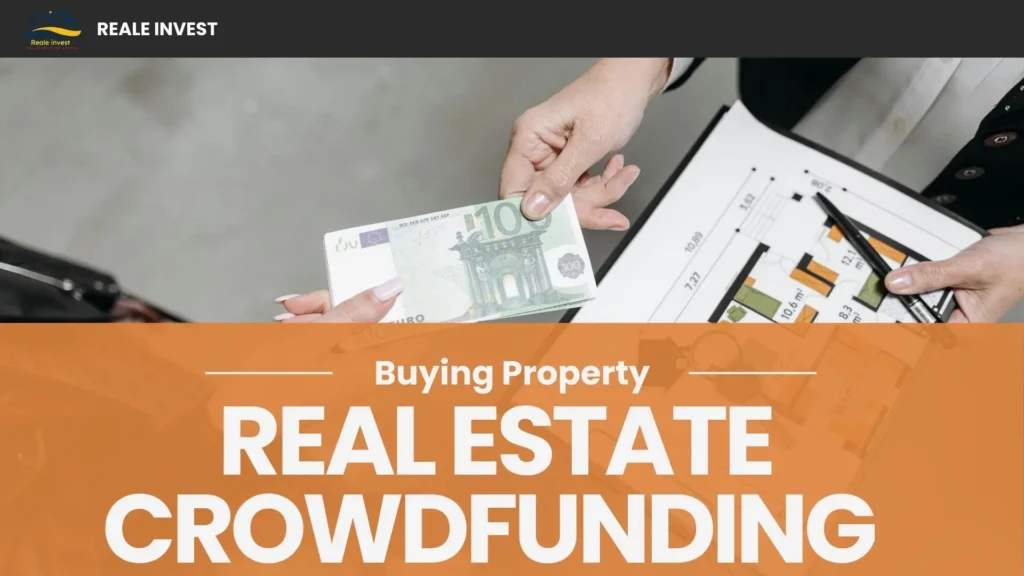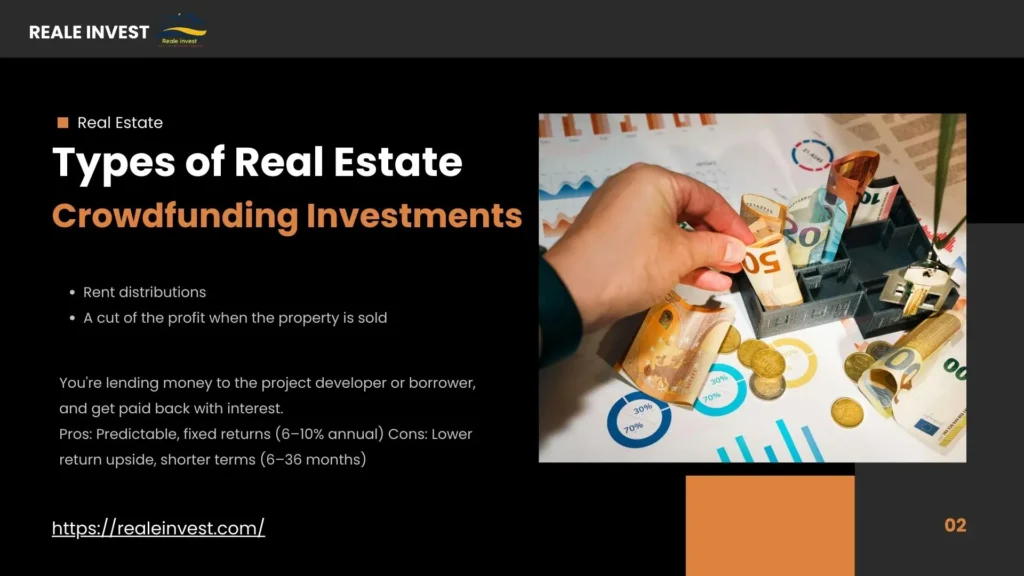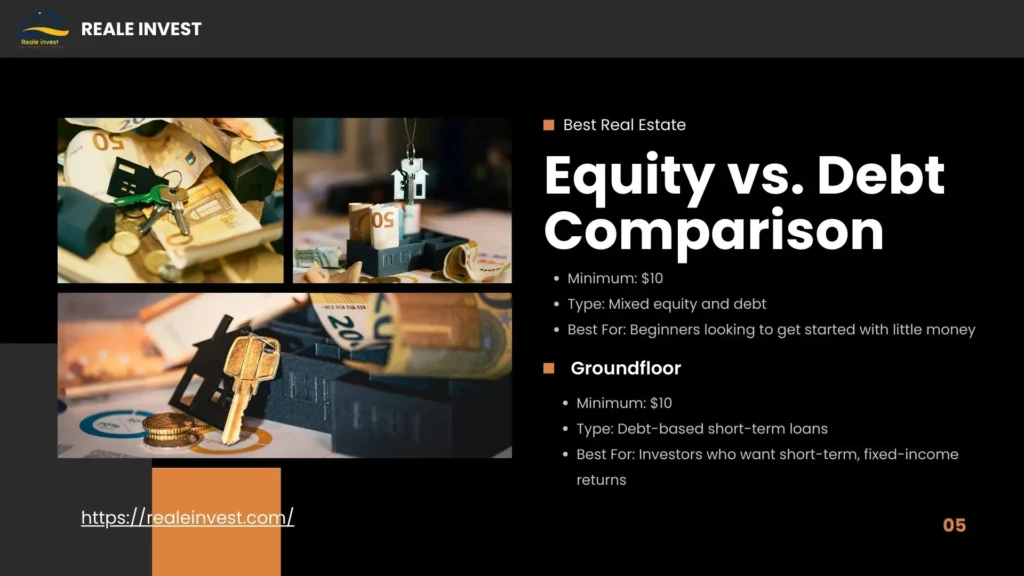RealeInvest is a comprehensive website providing accurate information on real estate and tourist bookings, from buying and investment tips to real estate financing

You Don’t Need to Be Rich to Invest in Real Estate

You might think real estate is only for the wealthy — people with six-figure bank accounts and vacation homes. That’s outdated thinking. In 2025, you can get into real estate investing without ever buying or managing a single property.
Thanks to real estate crowdfunding, you’re now able to join thousands of others in funding property deals that were once limited to the elite. And you can start with as little as $10. If you’ve been waiting for a way to invest without taking on a mortgage or becoming a landlord, this is it.
- You Don’t Need to Be Rich to Invest in Real Estate
- What Is Real Estate Crowdfunding?
- Types of Real Estate Crowdfunding Investments
- Best Real Estate Crowdfunding Platforms in 2025
- Why People Choose Real Estate Crowdfunding
- Real Risks to Consider Before You Invest
- How to Make Your First Crowdfunding Investment in Real Estate
- FAQ: Real Estate Crowdfunding Explained
- Is This the Right Time for You to Start?
- Final Call to Action
What Is Real Estate Crowdfunding?
How It Works
- Online platforms connect investors with vetted real estate deals
- You browse projects, choose one that fits your goals, and invest
- Returns come through monthly dividends (from rent) or property appreciation over time
Why It Matters for You
- No need to save a down payment or deal with tenants
- Flexible entry with low minimum investment thresholds
- Diversify your income without quitting your job
Types of Real Estate Crowdfunding Investments

Equity Crowdfunding
You acquire a portion of the property and generate revenue by:
- Rent distributions
- A cut of the profit when the property is sold
Pros: Higher returns potential Cons: Money is locked up for longer (3–7 years on average)
Debt Crowdfunding
You’re lending money to the project developer or borrower, and get paid back with interest.
Pros: Predictable, fixed returns (6–10% annual) Cons: Lower return upside, shorter terms (6–36 months)
Comparison Table
| Type | Ownership | Return Type | Risk | Liquidity |
|---|---|---|---|---|
| Equity | Yes | Rental income + sale gains | Moderate to High | Low (long hold) |
| Debt | No | Fixed interest payments | Low to Moderate | Moderate |
Best Real Estate Crowdfunding Platforms in 2025

Here are the top platforms trusted by investors:
Fundrise
- Minimum: $10
- Type: Mixed equity and debt
- Best For: Beginners looking to get started with little money
RealtyMogul
- Minimum: $5,000
- Type: Equity and REITs
- Best For: More experienced investors who want vetted commercial projects
CrowdStreet
- Minimum: $25,000
- Type: Institutional-grade real estate (accredited investors only)
- Best For: High-net-worth individuals
Groundfloor
- Minimum: $10
- Type: Debt-based short-term loans
- Best For: Investors who want short-term, fixed-income returns
Why People Choose Real Estate Crowdfunding
You might still be asking, “Why not just buy a house or duplex and rent it out?” Here’s why crowdfunding may make more sense for your situation:
- No Landlord Headaches: No maintenance, no chasing rent, no evictions
- Lower Risk Exposure: Spread your money across different projects and regions
- Access to Commercial Properties: Office buildings, retail centers, apartments you couldn’t afford alone
- Start Small: You don’t need to risk your savings or take out loans
Real Risks to Consider Before You Invest
Illiquidity
- Most equity deals lock your money up for 3–7 years
- Some platforms offer early redemption, but fees apply
Market Risk
- Real estate values can drop
- Rental income may not be guaranteed
Platform Risk
- You’re trusting the platform to vet deals, manage payouts, and stay solvent
- Always check reviews and SEC filings if available
Limited Control
- You won’t get to choose tenants, set rents, or make improvement decisions
Tip: Diversify across multiple projects and platforms to manage your risk.
How to Make Your First Crowdfunding Investment in Real Estate
- Set Your Budget – Decide how much you can invest without affecting your emergency fund.
- Pick a Platform – Choose based on your budget, goals, and risk tolerance.
- Select Your Investment Type – Debt for fixed income, equity for growth.
- Browse Deals – Read the project details, estimated returns, and timeline.
- Invest and Monitor – Track performance and reinvest your earnings.
Bonus Tip: Some platforms let you auto-invest based on your goals.
FAQ: Real Estate Crowdfunding Explained
Is real estate crowdfunding safe?
It’s relatively safe if you understand the risks. Like all investments, nothing is guaranteed.
How much can I make?
Average returns range from 6–12% annually depending on the platform and deal type.
Do I need to be accredited?
Not always. Numerous platforms have low minimum requirements for non-accredited investors.
Can I cash out anytime?
Usually no. You’ll need to wait for the investment term to end or pay early withdrawal fees.
Is This the Right Time for You to Start?
If you’ve been on the fence about getting into real estate, crowdfunding could be your first smart move. It’s low-commitment, affordable, and flexible. You can learn as you go and build a portfolio of assets that pays you while you sleep.
No tenants. No renovations. No 3 a.m. calls.
Just simple, smart investing.
Final Call to Action
If you’re ready to start investing, pick one of the platforms above and create a free account. Even if you just start with $10, you’re taking your first step into the world of real estate ownership.
Drop a comment below if you’ve tried any crowdfunding platforms or if you’re curious about where to begin.
Want to learn more? Read our next guide: “REITs vs Crowdfunding: Which Is Better in 2025?